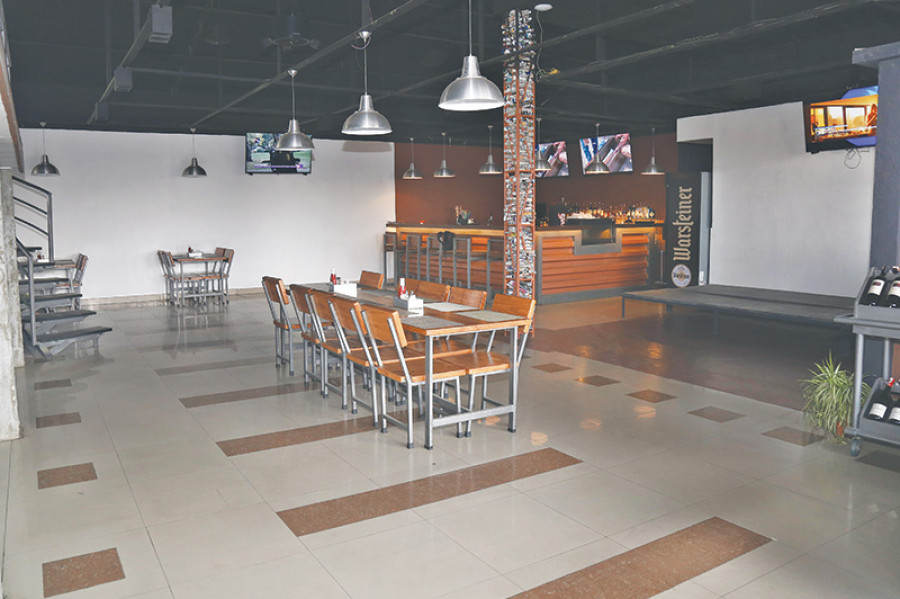Money
Trade unions postpone plan to shut down restaurants
Three trade unions affiliated to the ruling and opposition parties postponed their plan to go on strike by shutting down all member restaurants of the Restaurant and Bar Association of Nepal on Tuesday after the Labour Department assured them to serve notice on the legal definition of service charge by Wednesday.
Krishana Prasain
Three trade unions affiliated to the ruling and opposition parties postponed their plan to go on strike by shutting down all member restaurants of the Restaurant and Bar Association of Nepal on Tuesday after the Labour Department assured them to serve notice on the legal definition of service charge by Wednesday.
The notice will define whether the 10 percent service charge levied on the food bills of customers is mandatory or optional. The notice is expected to be decisive for the hospitality industry because it can impact the Hotel Association of Nepal as well the restaurants that employ thousands of workers across the country.
Last Monday, the Restaurant and Bar Association of Nepal (REBAN), which has more than 170 member restaurants in Kathmandu, Chitwan and Pokhara, decided that the service charge would be left to the discretion of diners and no longer be mandatory.
Subsequently, the trade unions decided to shut down all member restaurants for an indefinite period from Tuesday, demanding the roll back of their decision.
Restaurants workers also intensified their protest against the cancellation of the mandatory service charge by going on partial strike on Sunday and Monday, saying they faced a sharp reduction in their take-home pay due to its removal.
Restaurant workers stopped providing services from 1 to 6 pm to protest the association’s decision to optionalise the 10 percent service charge added to the meal bill of customers. Many workers said they were not even getting their minimum wages.

The government has set the minimum monthly salary of Rs13,450 for all industrial workers. Restaurant workers said that since they were getting far below the minimum pay set by the government, they needed the extra Rs8,000 to Rs9,000 they were earning through the service charge.
On Tuesday, the department summoned the representatives of the agitating trade unions and members of the REBAN to sort out the issue. However, the REBAN stayed away from the meeting. The department also requested the trade unions not to disrupt the daily services in the name of protest.
“We have decided to postpone the planned protest for the time being after the department assured us to serve notice on the legal definition of service charge,” said Madhav Pandey, president of the CPN (Maoist Centre) affiliated All Nepal Hotel, Casino and Restaurant Workers Union. “The next meeting has been called on Monday.”
Consumer rights activists have backed the REBAN’s decision. Nepal’s existing labour law is flexible on allowing restaurant operators to collect a service charge for workers. However, rights group said that the Consumer Act and the Constitution stipulate that consumers not be cheated on the pretext of collecting a service charge.
The service charge was made mandatory in 2007 in a bid to narrow the differences between hotel management and employees when their dispute was at its peak.
Pramod Kumar Jaiswal, president of REBAN, said they did not attend Tuesday’s meeting. “We are scheduled to meet with the Department of Labour on Sunday,” he said. “We are ready to abide by the decision taken by the government.”
The mandatory service charge system came into force on January 1, 2007. Since then, hotel and restaurant customers have been paying 24.3 percent extra on the menu price as 10 percent compulsory service charge, 13 percent value added tax (VAT) and 1.3 percent service tax. The VAT and service tax go to the government.
Last June, Hotel Association Nepal and the Nepal Tourism and Hotel Labourers Association ended a two-year dispute over the sharing of service charges raised from consumers. They agreed that hotel employees would get 72 percent, the hotel management would get 23 percent, Hotel Association Nepal would get 2 percent and the three trade unions affiliated to the Nepali Congress, the CPN-UML and the CPN (Maoist Centre) would get 1 percent each.
The Restaurant and Bar Association of Nepal did not participate in the negotiations and have been following the 2007 agreement under which employees get 68 percent, while the management gets 32 percent of the service charge.




 9.7°C Kathmandu
9.7°C Kathmandu















